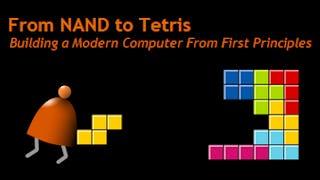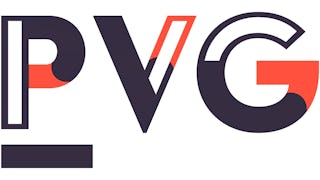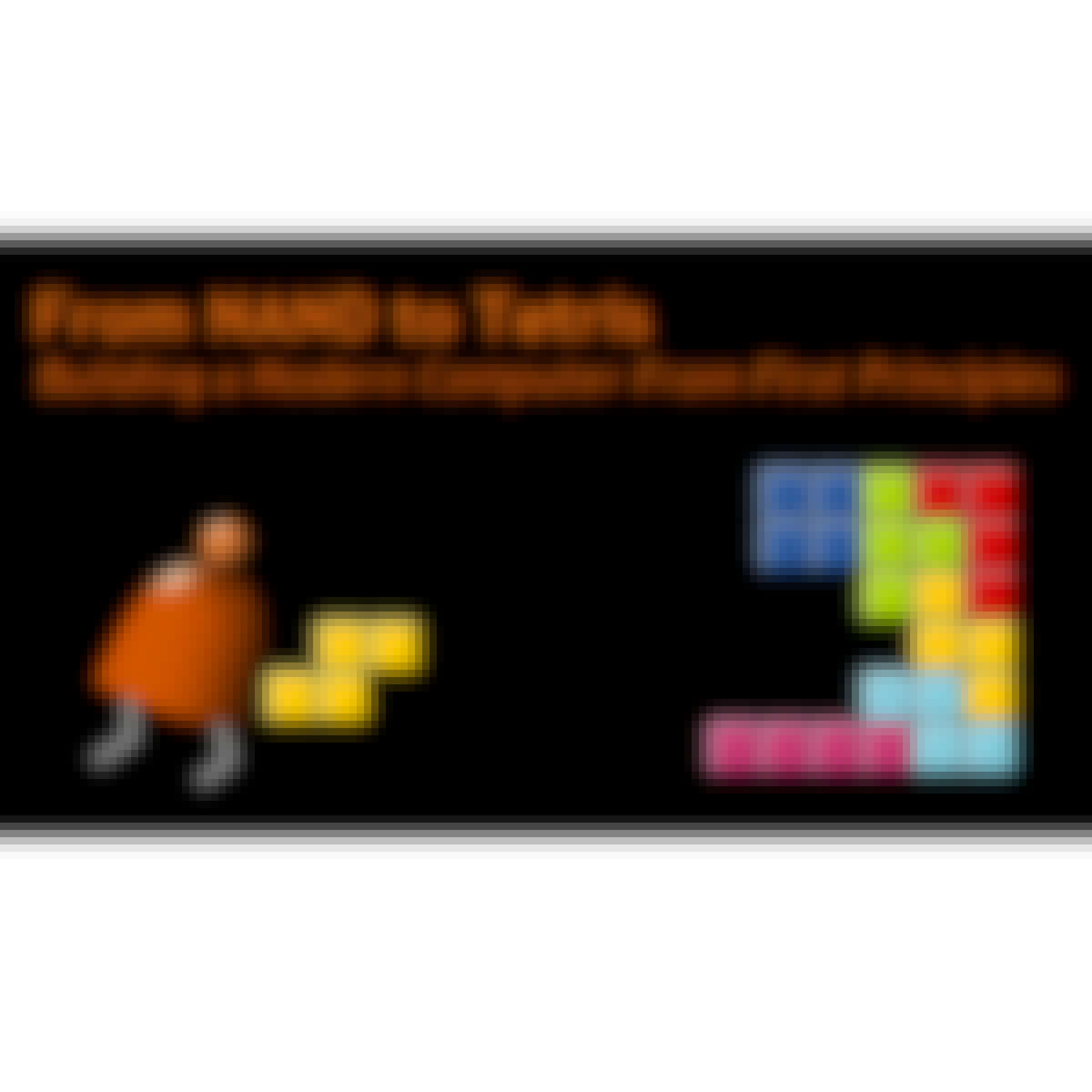- Browse
- Computer
Computer Courses
Computer courses can help you learn programming languages like Python and Java, data structures, algorithms, and web development fundamentals. You can build skills in software design, debugging, and database management, along with understanding cybersecurity principles. Many courses introduce tools such as Git for version control, SQL for database queries, and frameworks like React for building user interfaces, demonstrating how these skills are applied in real-world projects.
Popular Computer Courses and Certifications
 Status: Free TrialFree TrialU
Status: Free TrialFree TrialUUniversity of London
Skills you'll gain: Computer Science, Debugging, Development Environment, Computer Systems, Web Applications, Arithmetic, Computer Literacy, Javascript, Network Security, Computer Networking, Computer Programming Tools, Applied Mathematics, Computer Graphics, Web Design and Development, Software Development Tools, Cybersecurity, Computational Thinking, Computer Programming, General Mathematics, Problem Solving
Build toward a degree
4.2·Rating, 4.2 out of 5 stars1.5K reviewsBeginner · Specialization · 1 - 3 Months
 Status: FreeFreeP
Status: FreeFreePPrinceton University
Skills you'll gain: Programming Principles, Computer Programming, Object Oriented Programming (OOP), Performance Tuning, Data Structures, Java Programming, Java, Program Development, File I/O, Computational Thinking, Computer Science, Algorithms, Animations, Debugging
4.7·Rating, 4.7 out of 5 stars1.3K reviewsBeginner · Course · 1 - 3 Months
 Status: FreeFreeP
Status: FreeFreePPrinceton University
Skills you'll gain: Theoretical Computer Science, Data Structures, Computer Science, Computer Architecture, Algorithms, Programming Principles, Computational Logic, Java Programming, Computer Hardware, Scalability
4.7·Rating, 4.7 out of 5 stars746 reviewsIntermediate · Course · 1 - 3 Months
 Status: PreviewPreviewH
Status: PreviewPreviewHHebrew University of Jerusalem
Skills you'll gain: Computer Architecture, Computer Hardware, Computer Engineering, Computer Science, Computational Logic, Programming Principles, Computer Programming, System Design and Implementation, Program Development, Data Storage
4.9·Rating, 4.9 out of 5 stars3.7K reviewsMixed · Course · 1 - 3 Months
 C
CCoursera
Skills you'll gain: WordPress, Content Management Systems, Web Content, Web Design and Development, Web Design, Web Development, Blogs, Social Media, Content Management, Marketing, Design, Computer Science
4.4·Rating, 4.4 out of 5 stars4.3K reviewsAdvanced · Guided Project · Less Than 2 Hours
 Status: FreeFreeU
Status: FreeFreeUUniversity of Alberta
Skills you'll gain: Computational Thinking, Video Game Development, Game Design, Programming Principles, Animation and Game Design, Software Quality (SQA/SQC), Problem Solving, Computer Programming, Theoretical Computer Science, Program Development, Software Engineering, Python Programming, Algorithms, Pseudocode, Data Structures, Application Design, Debugging, Problem Management, Computer Science, Functional Testing
4.3·Rating, 4.3 out of 5 stars235 reviewsBeginner · Course · 1 - 3 Months
What brings you to Coursera today?
 Status: Free TrialFree Trial
Status: Free TrialFree TrialSkills you'll gain: Unified Modeling Language, File I/O, Visual Basic (Programming Language), Database Management, System Software, Databases, Relational Databases, Algorithms, Computer Architecture, Network Security, Computer Hardware, SQL, Computer Science, Development Environment, Data Structures, Object Oriented Programming (OOP), Object Oriented Design, Computer Programming, Microsoft Development Tools, Programming Principles
4.6·Rating, 4.6 out of 5 stars169 reviewsBeginner · Specialization · 3 - 6 Months
 Status: NewNewStatus: Free TrialFree Trial
Status: NewNewStatus: Free TrialFree TrialSkills you'll gain: Data Structures, Algorithms, Computational Thinking, Programming Principles, Computer Programming, Computer Science
Advanced · Course · 1 - 3 Months
 Status: PreviewPreview
Status: PreviewPreviewSkills you'll gain: Microarchitecture, Computer Architecture, Hardware Architecture, Computer Hardware, Computer Systems, Computer Science, Embedded Systems, OS Process Management, Computer Programming, C (Programming Language), Program Development, C# (Programming Language)
4.7·Rating, 4.7 out of 5 stars70 reviewsBeginner · Course · 1 - 3 Months
 Status: Free TrialFree TrialU
Status: Free TrialFree TrialUUniversity of London
Skills you'll gain: Arithmetic, Applied Mathematics, Computer Science, Computational Thinking, General Mathematics, Mathematical Modeling, Algebra, Cryptography, Systems Of Measurement
4.2·Rating, 4.2 out of 5 stars274 reviewsBeginner · Course · 1 - 4 Weeks
 Status: PreviewPreviewH
Status: PreviewPreviewHHebrew University of Jerusalem
Skills you'll gain: Computer Science, Computer Engineering, Computer Architecture, Computer Programming, System Programming, Virtual Machines, Operating Systems, Software Architecture, Algorithms, Software Design, Program Development, Object Oriented Programming (OOP), Data Structures, Computer Graphic Techniques
4.9·Rating, 4.9 out of 5 stars532 reviewsMixed · Course · 1 - 3 Months
 Status: Free TrialFree TrialJ
Status: Free TrialFree TrialJJohns Hopkins University
Skills you'll gain: Bioinformatics, Unix Commands, Biostatistics, Exploratory Data Analysis, Statistical Analysis, Unix, Data Science, Data Management, Statistical Methods, Command-Line Interface, Statistical Hypothesis Testing, Linux Commands, Data Analysis Software, Data Quality, Data Structures, Data Analysis, Computer Science, Molecular Biology, R Programming, Python Programming
4.5·Rating, 4.5 out of 5 stars6.8K reviewsIntermediate · Specialization · 3 - 6 Months
In summary, here are 10 of our most popular computer courses
- Introduction to Computer Science and Programming: University of London
- Computer Science: Programming with a Purpose: Princeton University
- Computer Science: Algorithms, Theory, and Machines: Princeton University
- Build a Modern Computer from First Principles: From Nand to Tetris (Project-Centered Course): Hebrew University of Jerusalem
- Build a Full Website using WordPress: Coursera
- Problem Solving, Python Programming, and Video Games: University of Alberta
- Introduction to Computer Programming with Visual Basic: LearnQuest
- Advanced Algorithms and Problem-Solving Techniques: Packt
- Introduction to Microprocessors: Arm
- Mathematics for Computer Science: University of London
Frequently Asked Questions about Computer
Computers are electronic devices that process data and perform tasks according to a set of instructions, known as programs. They play a crucial role in modern society, influencing nearly every aspect of our daily lives, from communication and entertainment to business operations and scientific research. Understanding computers is essential because they drive innovation and efficiency across various industries, enabling individuals and organizations to solve complex problems and make informed decisions.
A variety of job opportunities exist in the computer field, ranging from software development and data analysis to cybersecurity and IT support. Positions such as software engineer, data scientist, network administrator, and systems analyst are in high demand. Additionally, roles in emerging areas like artificial intelligence and machine learning are gaining traction. By acquiring relevant skills and knowledge, you can position yourself for a rewarding career in this dynamic sector.
To succeed in the computer field, you should focus on developing a mix of technical and soft skills. Key technical skills include programming languages (such as Python, Java, or C++), understanding algorithms and data structures, and familiarity with databases and networking. Soft skills like problem-solving, critical thinking, and effective communication are equally important, as they enable you to collaborate with others and convey complex ideas clearly.
There are numerous online courses available to help you learn about computers. Some notable options include the Fundamentals of Computing Specialization and the Introduction to Computer Science and Programming Specialization. These courses cover foundational concepts and practical applications, making them suitable for learners at various levels.
Yes. You can start learning computer courses on Coursera for free in two ways:
- Preview the first module of many computer courses at no cost. This includes video lessons, readings, graded assignments, and Coursera Coach (where available).
- Start a 7-day free trial for Specializations or Coursera Plus. This gives you full access to all course content across eligible programs within the timeframe of your trial.
If you want to keep learning, earn a certificate in computer, or unlock full course access after the preview or trial, you can upgrade or apply for financial aid.
Learning about computers can be approached through various methods. Start by identifying your interests and goals, then choose relevant courses or resources. Online platforms like Coursera provide structured learning paths, allowing you to progress step-by-step. Additionally, engaging in hands-on projects, participating in coding challenges, and joining online communities can enhance your understanding and provide practical experience.
Computer courses typically cover a range of topics, including programming, algorithms, data structures, software development, networking, and cybersecurity. Specialized courses may focus on areas like computer vision, data science, or computer forensics. This diversity allows learners to tailor their education to their specific interests and career aspirations, ensuring they acquire the knowledge needed for their desired roles.
For training and upskilling employees, courses like the Computer Security and Systems Management Specialization and the MathWorks Computer Vision Engineer Professional Certificate can be particularly beneficial. These programs provide practical skills and knowledge that can be directly applied in the workplace, helping organizations stay competitive in a rapidly evolving digital landscape.










